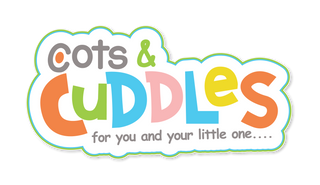Introduction
Snacking is a crucial part of a child’s diet, providing the energy they need for growth and play. However, choosing the right snacks can be a challenge. Healthy snacks not only keep your little ones satisfied but also contribute to their overall development. This guide offers practical tips and ideas for nutritious snacks that children will love.

1. Fruits and Vegetables: Nature's Perfect Snacks
Why Choose Them?
Packed with vitamins, minerals, and fiber, fruits and veggies are essential for healthy growth.
Quick Ideas:
- Fruit Kabobs: Alternate grapes, apple slices, and berries on skewers for a colorful treat.
- Veggie Sticks with Dip: Pair carrot, cucumber, and bell pepper sticks with hummus or yogurt-based dips.
- Frozen Banana Pops: Dip bananas in yogurt and freeze for a refreshing snack.
Tip: Let kids pick their favorite fruits or vegetables during grocery shopping to get them excited about eating them.
2. Whole-Grain Goodness
Why Choose Whole Grains?
Whole grains provide sustained energy and are a rich source of fiber, which aids digestion.
Snack Ideas:
- Homemade Trail Mix: Mix whole-grain cereal, nuts, and dried fruits for a grab-and-go snack.
- Mini Whole-Grain Wraps: Roll up whole-grain tortillas with peanut butter and banana slices.
- Popcorn: Air-popped and lightly seasoned popcorn is a fun, healthy option.
Tip: Avoid sugary cereals or flavored popcorn loaded with unhealthy additives.
3. Dairy Delights for Strong Bones
Why Include Dairy?
Dairy products are rich in calcium and protein, essential for bone and muscle development.
Snack Ideas:
- Cheese Cubes and Crackers: Pair small cheese cubes with whole-grain crackers for a quick snack.
- Smoothies: Blend milk or yogurt with fruits like mangoes, strawberries, or spinach for a nutrient-packed drink.
- Greek Yogurt Parfaits: Layer Greek yogurt with granola and fresh fruit for a crunchy, creamy treat.
Tip: Opt for low-sugar dairy options to avoid excessive calorie intake.
4. Protein-Packed Snacks
Why is Protein Important?
Protein helps repair tissues, build muscles, and keep your child full longer.

Snack Ideas:
- Boiled Eggs: Slice them for easy-to-eat snacks or make a simple egg salad.
- Mini Meatballs: Use lean meats and bake them into bite-sized portions.
- Nut Butter Dip: Serve almond or peanut butter with apple slices or rice cakes.
Tip: Ensure nut-based snacks are safe for kids with allergies.
5. Homemade Bites: Fun and Creative
Why Go Homemade?
Making snacks at home ensures you control the ingredients and avoid preservatives.

Snack Ideas:
- Energy Balls: Combine oats, honey, nut butter, and chocolate chips into small balls.
- Zucchini Muffins: Bake muffins using whole-grain flour and shredded zucchini.
- Mini Pizza Cups: Use whole-grain tortillas as a base, top with tomato sauce, cheese, and veggies, and bake.
Tip: Get your kids involved in the kitchen to make snack prep an enjoyable activity.
6. Hydration Matters
Why Focus on Drinks?
Healthy beverages ensure your child stays hydrated without excessive sugar.
Drink Ideas:
- Infused Water: Add slices of cucumber, lemon, or berries to water for natural flavor.
- Milk Alternatives: Try almond, oat, or soy milk if your child is lactose-intolerant.
- Homemade Iced Tea: Brew herbal tea, chill, and lightly sweeten with honey.
Tip: Avoid sugary sodas and juices; water and milk are the best hydration choices.
Conclusion
Healthy snacks lay the groundwork for lifelong good eating habits. By offering a variety of nutrient-rich, fun-to-eat options, you can ensure your children stay energized and happy. Remember, the key is balance—snacks should complement their main meals, not replace them.

What are your child’s favorite snacks? Share your ideas in the comments below!

